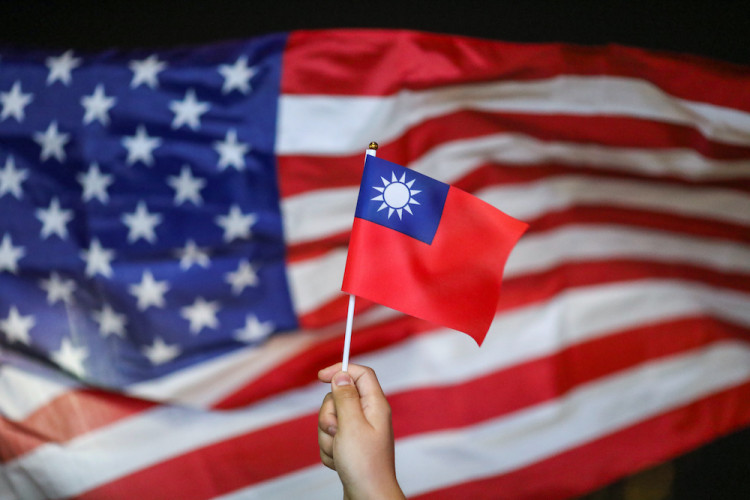Members of the ruling Democratic Progressive Party demanding changes to Taiwan's national emblems - they say are a reminder of the country's authoritarian past - will have to wait two months.
The interior ministry will consider the changes and report back to the legislature's internal administration committee in two months, the country's national news agency CNA reported.
"Our emblem and anthem come from the Kuomintang - which should not be used to represent our country," Democratic Progressive politician Chen Ting-fei said.
The country's flag - a white sun on a blue background - and national anthem date back to 1927 and 1936, respectively, when the Kuomintang controlled the China mainland.
Communist forces defeated the Kuomintang in 1949, forcing the party and its supporters to flee to Taiwan where one party rule took hold until 1986 - though it would take until 1996 for the first democratic presidential election.
There is a "high degree of similarity" between the Kuomintang emblems and Taiwan's national symbols, but the country must "take a long view" and "reach a broad social consensus" before making changes according to cabinet secretary-general Li Meng-yen.
Today, the Kuomintang is Taiwan's second-largest political organization and party officials condemned any change to the national flag and constitution as "needlessly provocative."
"What the Democratic Progressives propose is a political trick to deceive the public, provoke the mainland and divide the people of Taiwan," Kuomintang representative Lu Chen-wei said.
But the blue and white sun is more than a national symbol for the people who lived through nearly four decades one party rule. Kuomintang leader Chiang Kai-shek imposed martial law shortly after arriving in Taiwan and thousands were subjected to detention, torture and death.
"Whoever called for political freedom and democracy was subject to imprisonment or even secret execution," former political prisoner Chang Mao-hsiung, 72, told the South China Morning Post. He was jailed for five years for criticizing Chiang.
Like the Communist Party of China now, Chiang aspired to a greater China state stretching from Taiwan to Mongolia - a dream referred to in the island nation's constitution to this day. The Democratic Progressives believe this doesn't jibe with the ambitions of modern Taiwan.
"Our constitution reflects a greater China mentality that does not reflect our reality," Chen Ting-fei said. "Our jurisdiction only extends to Taiwan, Kinmen, Pegnhu and Matsu - not China and Mongolia."
However, any reforms are a long way off. First, a legislative committee must put forward a formal motion in the full legislative and a vote on the matter must be seconded by a quarter of the lawmakers.
Three quarters of the legislative body must vote in favor of the motion to trigger a referendum which will finally be voted on by the general public. As it stands, the Democratic Progressives hold 61 seats and the Kuomintang has 38, while a further 14 seats are controlled by various opposition parties.





